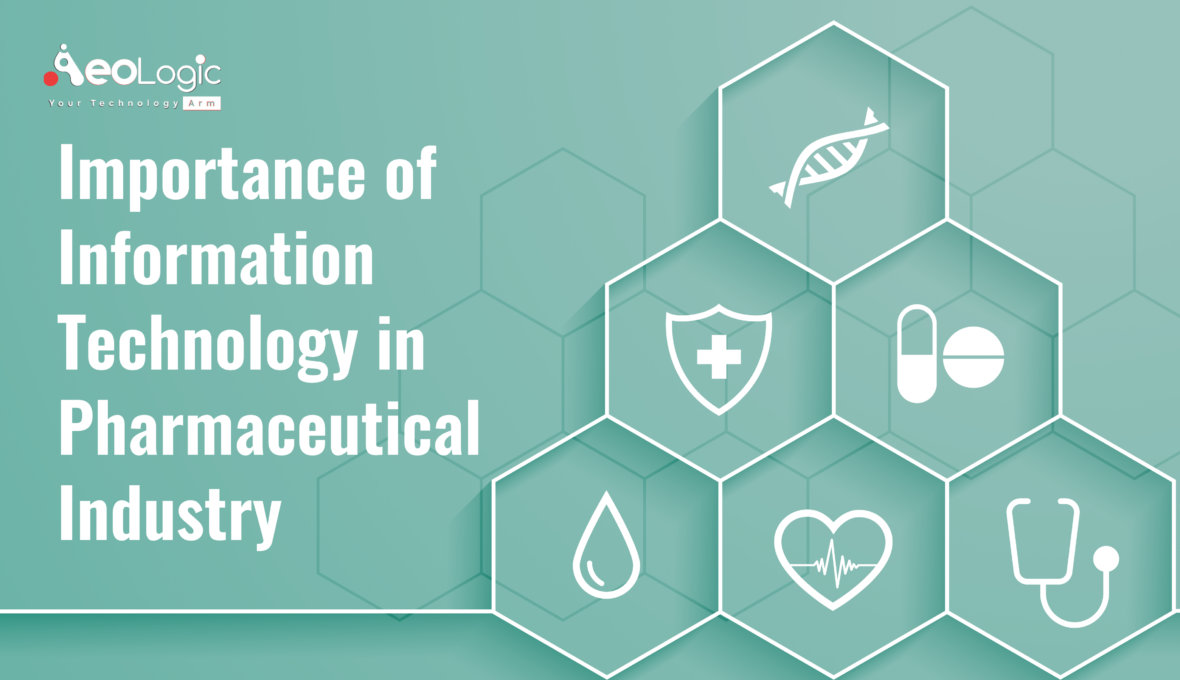If you’ve ever wondered how the pharmaceutical industry continues to innovate, you’re not alone. I’ve often pondered the same thing, and I’m excited to share with you what I’ve discovered. It turns out that Information Technology (IT) plays a crucial role in driving the success of the pharmaceutical industry. (https://www.propertyspecialistsinc.com) In this article, we’ll explore the various ways IT is transforming the world of medicine, making it more efficient and effective than ever before.
Enhancing Research and Development (R&D)
One of the most significant benefits of IT in the pharmaceutical industry is its ability to revolutionize the research and development process. Here are a few examples of how IT helps in R&D:
- Data analysis: Advanced data analytics tools enable researchers to analyze massive amounts of data, leading to faster discoveries and more accurate results.
- Simulation and modeling: Sophisticated software programs allow researchers to simulate and model various scenarios, leading to better predictions and more effective solutions.
- Collaboration: Cloud-based platforms make it easy for researchers across the globe to collaborate and share their findings, leading to a more efficient R&D process.
Streamlining Drug Discovery
The drug discovery process is complex and time-consuming. However, IT has the potential to make this process more efficient in several ways:
- Artificial Intelligence (AI): AI and machine learning algorithms can analyze vast amounts of data to identify potential drug candidates, speeding up the drug discovery process.
- High-throughput screening: IT tools can automate the screening of thousands of chemical compounds, making it easier to identify promising drug candidates.
Also Read: The Importance of Information Technology in Healthcare
Improving Manufacturing and Quality Control
The pharmaceutical industry relies on advanced manufacturing processes to produce safe and effective medications. IT plays a crucial role in ensuring these processes run smoothly:
- Automation: IT systems can automate various manufacturing processes, resulting in higher efficiency and reduced human error.
- Quality control: Advanced analytics tools can monitor manufacturing processes in real-time, ensuring that quality standards are met consistently.
- Supply chain management: IT systems can track and manage the flow of materials, helping to optimize the supply chain and reduce waste.
Ensuring Regulatory Compliance
The pharmaceutical industry is subject to strict regulations, and IT helps companies stay compliant by:
- Automating regulatory reporting: IT systems can generate and submit regulatory reports automatically, reducing the risk of human error and ensuring timely submissions.
- Managing documentation: Document management systems can help companies maintain and organize essential regulatory documents, making it easier to track and retrieve information when needed.
Enhancing Sales and Marketing Efforts
IT has revolutionized how pharmaceutical companies market their products and interact with healthcare professionals. Here are some ways IT is changing the game:
- Customer Relationship Management (CRM): CRM systems help sales representatives manage their interactions with healthcare professionals, allowing them to provide better service and build stronger relationships.
- Digital marketing: Advanced analytics tools can optimize digital marketing campaigns, making it easier to reach target audiences and maximize return on investment.
- Telemedicine: IT platforms enable remote consultations between healthcare professionals and patients, providing new opportunities for pharmaceutical companies to engage with their target audience.
Also Read: Technology is Making Healthcare Affordable and Accessible
The Power of Mobile Applications
Mobile applications have become an essential tool in the pharmaceutical industry, offering numerous benefits:
- Information access: Mobile apps provide healthcare professionals with instant access to important drug information, helping them make better-informed decisions.
- Patient engagement: Mobile apps can help patients manage their medications and health conditions more effectively, leading to better health outcomes.
- Data collection: Mobile apps can collect and transmit valuable patient data, helping researchers gain insights and improve the development of new treatments.
Power of Big Data and Artificial Intelligence in Drug Repurposing
Another exciting trend in the pharmaceutical industry is the use of big data and artificial intelligence to identify new uses for existing drugs. This process, known as drug repurposing or repositioning, can significantly reduce the time and costs associated with traditional drug development. Here’s how IT is making this possible:
-
- Mining massive datasets: By analyzing vast amounts of data from sources such as electronic health records, clinical trials, and genomic databases, researchers can identify patterns and associations that may suggest new uses for existing drugs.
- Predictive algorithms: Machine learning algorithms can predict how a drug will interact with a specific target or biological pathway, helping researchers identify potential new therapeutic applications.
- Text mining: Natural language processing techniques can analyze scientific literature and patents to uncover previously unknown connections between drugs and diseases.
By harnessing the power of big data and AI, pharmaceutical companies can breathe new life into existing drugs, providing patients with more treatment options and improving overall healthcare outcomes.
The Future of IT in the Pharmaceutical Industry
With the rapid advancements in IT, the future of the pharmaceutical industry looks brighter than ever. Here are some exciting trends and innovations we can expect to see in the coming years:
-
- Blockchain technology: The use of blockchain technology can improve the traceability and transparency of pharmaceutical supply chains, ensuring the authenticity of medications and preventing counterfeiting.
- Personalized medicine: IT advancements will enable the development of more personalized treatments, tailored to individual patients’ genetic profiles and specific health needs.
- Virtual and augmented reality: These technologies can be used for training purposes, allowing healthcare professionals to practice complex procedures and learn about new treatments in a more immersive and engaging way.
- Remote monitoring: Wearable devices and IoT (Internet of Things) technology can collect and transmit patient data in real-time, allowing healthcare professionals to monitor patients’ health remotely and intervene when necessary.
Also Read: Information Technology Solutions for Healthcare
Final Thought
As you can see, Information Technology is truly revolutionizing the pharmaceutical industry, from research and development to manufacturing and marketing. By embracing IT and its myriad applications, pharmaceutical companies can streamline their operations, improve patient outcomes, and stay ahead in an increasingly competitive market. So, next time you marvel at the latest medical breakthrough, remember the crucial role that IT has played in making it a reality.
If you are also interested in taking an initiative in the medical sector and looking for industry experts, kindly collaborate for a collective effort. Do not hesitate to contact us at Aeologic Technologies.






